VNA reporter had an interview with Mr. Nguyen Huu Dung, Chairman of the Vietnam Marine Aquaculture Association to see more clearly the current situation, opportunities and major orientations to bring Vietnam's marine aquaculture industry to the regional and world level.
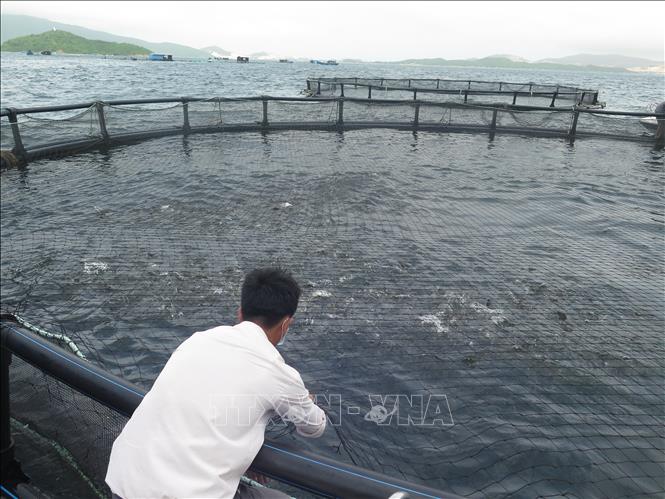
How do you evaluate the current development of marine aquaculture in Vietnam?
It can be said that Vietnam is entering a new development phase of marine aquaculture - a field full of potential associated with the strategy of sustainable marine economic development.
Up to now, Vietnam has had a relatively complete legal foundation, from the Fisheries Law, decrees, national planning, to the Project on developing marine aquaculture to 2030, vision 2045 according to Decision 1664/QD-TTg. The goal is to turn marine aquaculture into a large-scale, modern and sustainable commodity production industry.
Currently, marine aquaculture is present in 21 coastal provinces and cities, concentrated in Quang Ninh, Hai Phong, Khanh Hoa, An Giang... Many areas have favorable natural conditions in terms of depth, currents, and wind protection. While the aquaculture area on land no longer has room to expand, the sea is the new space for development.
However, most of the aquaculture is still inshore and small scale, vulnerable to pollution and conflicts over space use. Therefore, developing offshore aquaculture in an industrial direction is the inevitable direction of the future.
What do you think about the level of application of science and technology in marine farming?
In fact, Vietnam's marine aquaculture is at a low average level compared to the world, but Vietnam's ability to absorb technology is very fast. Some enterprises have applied modern technology from Norway, Japan... in environmental monitoring, livestock management and production automation. Recently, the Politburo issued Resolution No. 57-NQ/TW on breakthroughs in science, technology, innovation and national digital transformation. This is considered an important driving force to promote the modern marine aquaculture ecosystem, focusing on developing core technologies to serve the industry.
These are artificial reproduction technology, manufacturing of industrial marine farming equipment and vehicles, production of industrial feed for marine animals, and technology for harvesting, preserving, processing and transporting post-farming products. In parallel, the industry also aims at technology for extracting and refining high-value biological and biochemical products from seafood, making the most of by-products to form a zero-waste industry. In particular, the application of IoT, artificial intelligence (AI) and digitalization and automation of marine farming processes are considered the key for Vietnam to build a modern, sustainable and internationally integrated marine farming industry. However, there is still a shortage of highly specialized human resources in the above fields, especially industrial marine farming engineers.
To encourage businesses to invest in technology, two bottlenecks need to be resolved: long-term rights to use the sea and investment capital. The sea is a “means of production”. Without stable rights to use it, fishermen cannot boldly invest. It is like building a house: if land is only allocated for one year, people can only build temporary huts; but if it is allocated for 30 or 50 years, they dare to build a permanent structure.
Once granted a “green book” - a stable right of use, fishermen and businesses will dare to invest, mortgage loans from banks or mobilize international green capital. Marine aquaculture is a green, environmentally friendly activity, and if invested in the right direction, it will become a key economic sector of Vietnam.
With a two-level government, what advantages do you think there will be in managing and developing marine aquaculture?
The advantage is that the commune-level government is close to the people, understands the people, and can grasp the production situation quickly. But the difficulty lies in the limited capacity of sea management. Almost no officials have been properly trained in this field, so if the authority to manage the sea is transferred to the commune level without training and guidance, it will be very difficult to implement effectively.
Therefore, when decentralizing management, it is necessary to provide training, coaching, and professional guidance to grassroots staff. At the same time, it is necessary to digitize marine space management, assign codes to each farming area to trace the origin, avoid conflicts, and ensure transparency in exploitation and licensing.
According to you, what is the key solution to develop sustainable industrial marine aquaculture in the coming time?
The first solution is to complete the legal procedures for long-term sea area allocation according to Decree 65/2025/ND-CP. With two-level authorities, it is hoped that the allocation of sea area to fishermen will be implemented quickly.
To transform the current small-scale, fragmented marine aquaculture into planned, carefully designed aquaculture areas, it is necessary to establish industrial clusters and marine aquaculture industrial zones, with two parts: at sea and on land. Here, enterprises will invest in infrastructure, while fishermen and cooperatives will rent it for production. This model helps reduce initial investment costs, professionalize production, reduce pollution and form large-scale aquaculture areas, meeting the requirements of traceability and assessment according to international standards.
In addition, it is necessary to innovate the way of assessing environmental impacts. Instead of letting people make their own environmental impact assessment reports without being licensed or having not yet implemented farming, leading to many problems, while this is a complex scientific activity, the State should proactively study the environmental load of each sea area and then allocate it reasonably. Therefore, Vietnam needs to issue specific standards and regulations on environmental impacts in marine farming, avoiding putting this burden on the people; perfecting the management system with specific standards.
Promoting digital transformation, green transformation and human resource training - these are key factors for Vietnam to make a breakthrough and become the leading country in the region in industrial marine aquaculture.
Thank you very much.
Source: https://baotintuc.vn/kinh-te-bien-dao/nuoi-bien-cong-nghiep-vuon-tam-kinh-te-xanh-bai-cuoi-hoan-thien-the-che-but-pha-cong-nghe-20251112134917453.htm





![[Photo] Deep sea sand deposits, ancient wooden ship An Bang faces the risk of being buried again](https://vphoto.vietnam.vn/thumb/1200x675/vietnam/resource/IMAGE/2025/11/13/1763033175715_ndo_br_thuyen-1-jpg.webp)






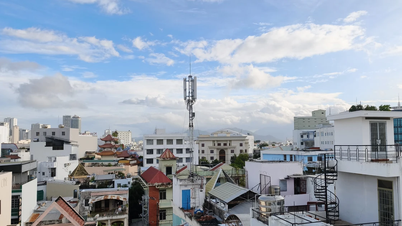

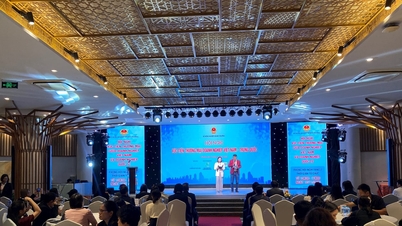

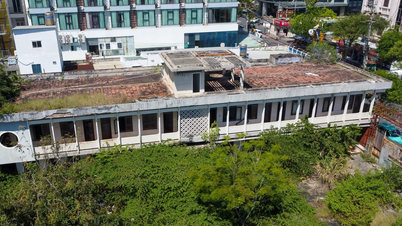

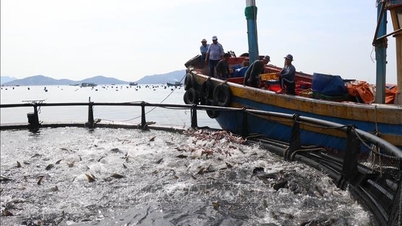













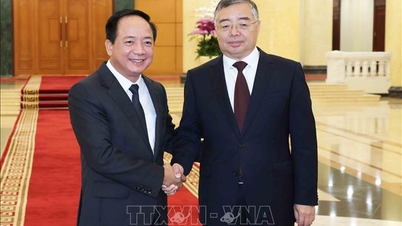


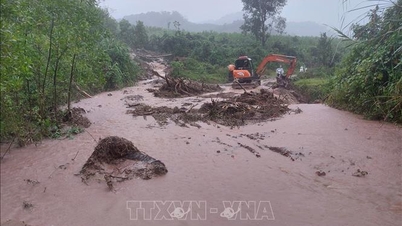








































![[Photo] Panorama of the 2nd Vietnam-Cambodia Border Defense Friendship Exchange](https://vphoto.vietnam.vn/thumb/402x226/vietnam/resource/IMAGE/2025/11/13/1763033233033_image.jpeg)
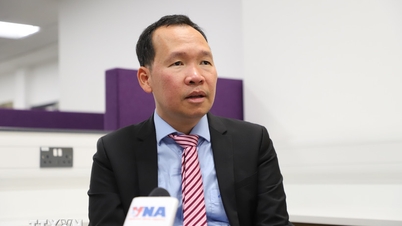

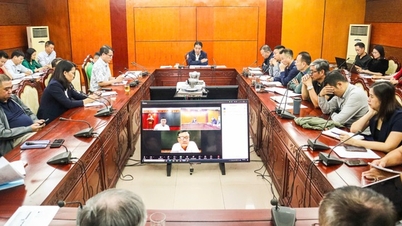
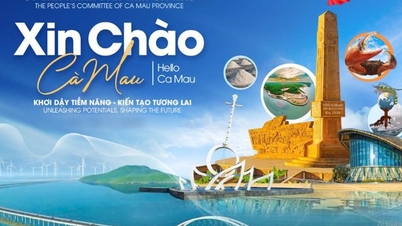
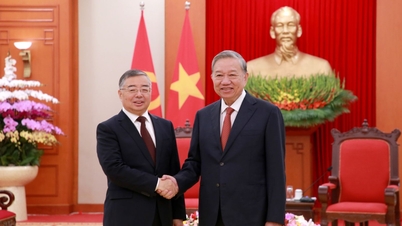

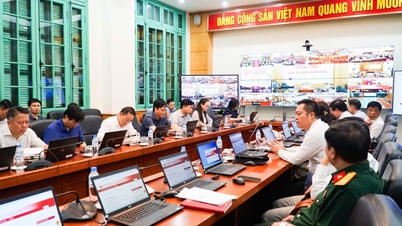

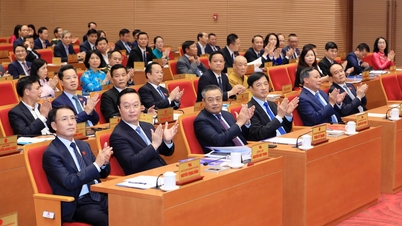
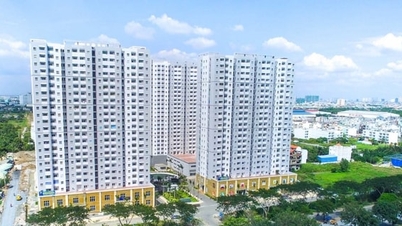

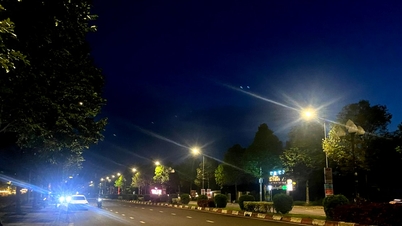

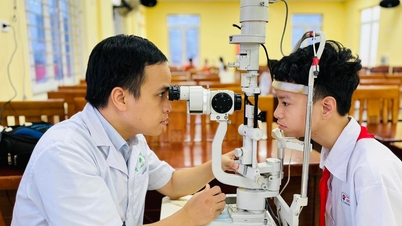





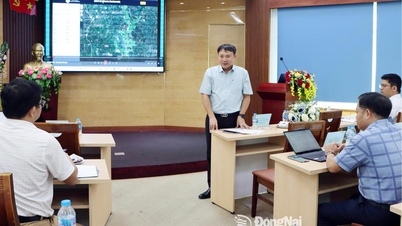





![Dong Nai OCOP transition: [Article 3] Linking tourism with OCOP product consumption](https://vphoto.vietnam.vn/thumb/402x226/vietnam/resource/IMAGE/2025/11/10/1762739199309_1324-2740-7_n-162543_981.jpeg)



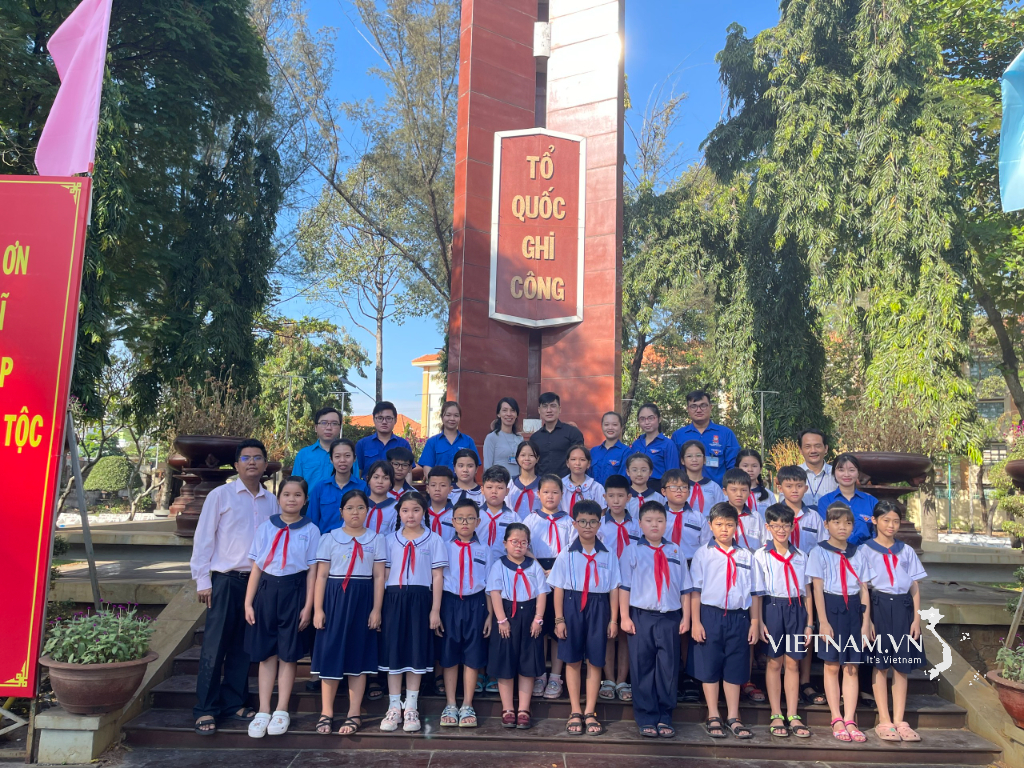


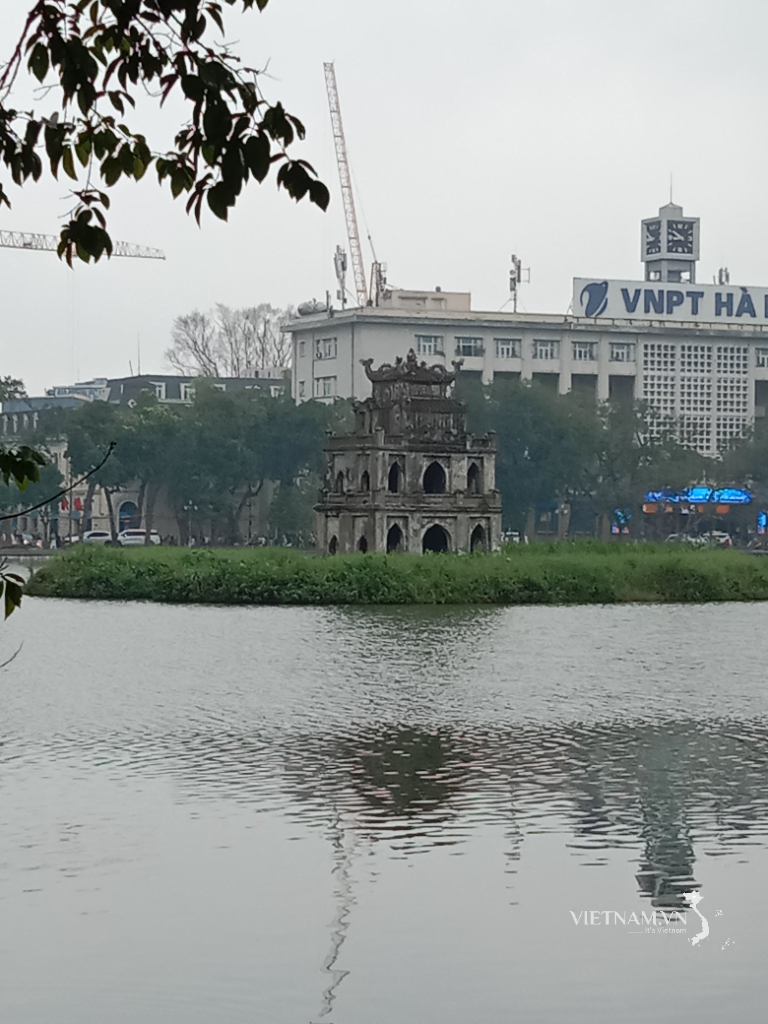
Comment (0)